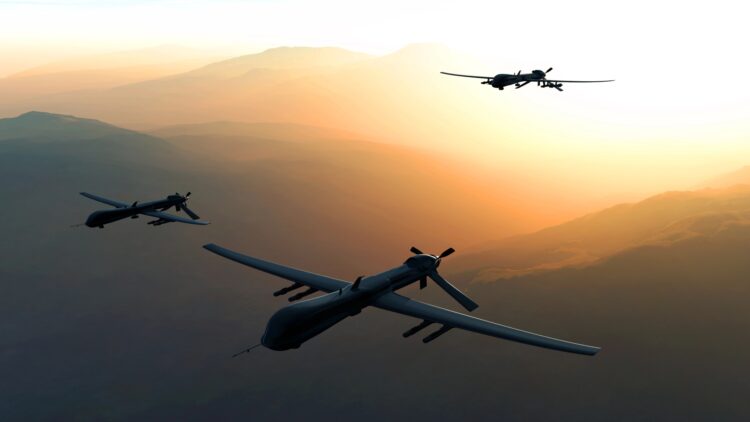Japan’s historic defence cooperation talks with Turkey mark a strategic pivot toward advanced unmanned warfare capabilities and expanded military partnerships beyond traditional allies. This groundbreaking diplomatic engagement represents Tokyo’s first official defence ministerial visit to Ankara, signaling both nations’ commitment to strengthening bilateral security relationships amid evolving global threats. The discussions focus on cutting-edge drone technology transfers and joint defence industry initiatives that could reshape regional military dynamics. This unprecedented collaboration demonstrates how middle-power nations are forging independent security partnerships while maintaining their existing alliance structures.
How Japan’s first defence minister’s visit to Turkey opens new cooperation
Japan’s defence minister discussed defence industry cooperation and possible purchases of Turkish-made drones during a visit to Ankara on Tuesday, as Tokyo expands the role of unmanned systems in its armed forces.
Gen Nakatani is the first Japanese defence minister to make an official trip to Turkey, a NATO member country that is keen to expand economic and other ties beyond Europe and the Middle East. Turkey and Japan are both U.S. allies.
Ahead of the visit, a diplomatic source in Ankara said the two countries’ defence ministers would “discuss ways to expand cooperation on defence equipment and technology and exchange views on regional developments”. They also aim to increase contacts between the Turkish Armed Forces and Japan’s Self-Defense Forces at the unit level, the source said.
Turkey’s emergence as a major drone manufacturing power has attracted global attention from military planners seeking advanced unmanned aerial vehicle capabilities for modern warfare scenarios. The country’s successful deployment of drone technology in various conflict zones has demonstrated the effectiveness of Turkish-made systems in real combat situations. Japan’s interest in these proven technologies reflects Tokyo’s recognition that future military operations will increasingly rely on unmanned platforms for surveillance, reconnaissance, and tactical missions. This technological partnership could provide Japan with battle-tested drone systems while offering Turkey access to Japanese precision manufacturing expertise and advanced electronics.
Why Turkey wants to expand defence partnerships beyond traditional European markets
Nakatani will also visit Istanbul on Wednesday and tour defence companies and facilities, including Turkish Aerospace Industries (TUSAS), navy shipyards and drone-maker Baykar, a Turkish Defence Ministry official said.
“Defence industry cooperation will be on the agenda…” the official said. “They will hold inspections regarding drones, but an agreement is not expected. It is too early for an agreement.”
Turkey-backed firms have supplied drones to several countries, including Ukraine, while Japan is preparing to expand the use of unmanned aerial vehicles across its ground, air, and naval forces.
Japan is considering Turkish drones among potential options as part of this effort, the diplomatic source said.
Defence Minister Yasar Guler said after his meeting with Nakatani that Turkey wanted to increase defence industry and military cooperation with Japan, his office said in a readout.
Both nations maintain alliance commitments while expanding bilateral cooperation
Turkey and Japan have both condemned Russia’s 2022 invasion of Ukraine, though Ankara has maintained cordial relations with Moscow and has not joined Western economic sanctions against it.
Nakatani’s visit to Turkey is part of a regional tour from August 17–22 that also includes stops in Djibouti and Jordan.
Japan and Turkey’s defence cooperation discussions represent a significant evolution in international military partnerships, demonstrating how allied nations are pursuing independent security relationships while maintaining their core alliance commitments. This collaboration highlights the growing importance of drone technology in modern warfare and the strategic value of diversifying defence industrial partnerships beyond traditional suppliers. The success of this initiative could encourage other nations to explore similar bilateral defence cooperation arrangements, potentially reshaping global military technology transfer patterns. This partnership exemplifies how middle-power nations can leverage their unique capabilities to enhance mutual security interests while contributing to broader regional stability.
GCN.com/Reuters.


